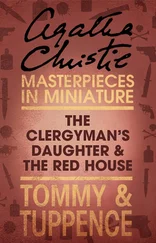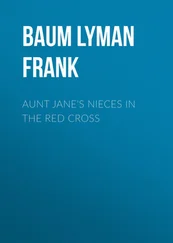John Schwartz - The Red Daughter
Здесь есть возможность читать онлайн «John Schwartz - The Red Daughter» весь текст электронной книги совершенно бесплатно (целиком полную версию без сокращений). В некоторых случаях можно слушать аудио, скачать через торрент в формате fb2 и присутствует краткое содержание. Город: New York, Год выпуска: 2019, ISBN: 2019, Издательство: Random House, Жанр: Историческая проза, на английском языке. Описание произведения, (предисловие) а так же отзывы посетителей доступны на портале библиотеки ЛибКат.
- Название:The Red Daughter
- Автор:
- Издательство:Random House
- Жанр:
- Год:2019
- Город:New York
- ISBN:978-1-40006-846-3
- Рейтинг книги:4 / 5. Голосов: 1
-
Избранное:Добавить в избранное
- Отзывы:
-
Ваша оценка:
- 80
- 1
- 2
- 3
- 4
- 5
The Red Daughter: краткое содержание, описание и аннотация
Предлагаем к чтению аннотацию, описание, краткое содержание или предисловие (зависит от того, что написал сам автор книги «The Red Daughter»). Если вы не нашли необходимую информацию о книге — напишите в комментариях, мы постараемся отыскать её.
The Red Daughter — читать онлайн бесплатно полную книгу (весь текст) целиком
Ниже представлен текст книги, разбитый по страницам. Система сохранения места последней прочитанной страницы, позволяет с удобством читать онлайн бесплатно книгу «The Red Daughter», без необходимости каждый раз заново искать на чём Вы остановились. Поставьте закладку, и сможете в любой момент перейти на страницу, на которой закончили чтение.
Интервал:
Закладка:
Peter and I finish our drinks in silence. He goes inside and returns with two more. And we finish those too.
Mr. and Mrs. Staehelin.
There is a kind of drunkenness one finds only in Russia. The Irish don’t know it, the French, the Greeks. An ecstasy of melancholy. The oldest lament in the world. A sadness that has no limits and so is very close to joy, but never reaches it. Joy’s dark cousin. I want Peter to know this feeling, I think. To be drunk like this, like a Russian, just once in his life. I want him to live.
I reach out and touch my hand to his cheek. His chair creaks as he leans his face toward mine. We kiss, but still he seems to be waiting for some kind of permission, a sign.
I take his hand and place it inside my blouse, on my breast. As I press against that hand, a small groan escapes him—and suddenly he grabs my hair, twists my head around, and kisses me hard on the mouth.
Then, just as suddenly, he is standing, our bodies divided; prickling, cool air where his hand was.
Sorry, he mutters .
He is careful to close the screen door softly behind him. Careful to climb with a penitent’s guilty attention the stairs to the room where his wife sleeps. Yet still those stairs crack and groan beneath him. And I wish to tell him—because I want him to live, because he needs me to tell him, because if not I then who?—that he cannot spend his life sitting alone at the front of the school bus, dreaming of foreign cities he will never visit. Sometimes we must act on our truest instincts, no matter the cost to others, or we will never escape the cages our cursed histories have put us in.
PART TWO

EDITOR’S NOTE
From the moment I met Martha Lewiston, at a cocktail party thrown by a friend of a friend on East Seventy-eighth Street in the spring of 1960, when she rather fiercely explained to me the difference between a barn owl and a barred owl, I believe I recognized that she was a person who guided herself according to the stringent comforts of a few deeply held convictions. Then one evening in the third month of our relationship, following a day filled with menial frustrations at the office, I joined some young associates from Wardlow Jenks at the bar at Grand Central. One martini led to another, one bar to another, and after a few hours I was pretty well adrift and thinking, frankly, about Martha and laying my hands on her. Stopping by her apartment, however, I found her in tears, declaring that she never wanted to see me again.
What I had done was unacceptable and very threatening to her. We had not had plans for the evening, she admitted, but that wasn’t the point. By gratuitously going out without her, then dropping by to rub her face in the gap between us, I had betrayed her, turned something private and beautiful into something exposed and cheap. I could never quite understand why this was so, but looking at the tears on her face, I found it impossible to doubt her certainty that it was.
Svetlana’s entry into our marital orbit was something neither Martha nor I ever recovered from. Our own personal Cold War, you might say, a living embodiment of an existential security threat; to the point where, toward the end of her life, four decades later, my wife would not under any circumstance utter the other woman’s name.
After my retirement from Wardlow Jenks five years ago, my study on the third floor of our Princeton house was for a time littered with towering stacks of file boxes containing material from virtually every legal matter I had ever worked on during my fifty years as a practicing attorney. Martha’s cancer had by then spread to her spleen and lungs, leaving her more or less housebound. I, on the other hand, with so much time on my hands, was often out running minor errands, trying my best to remain “useful.” (If lawyers are trained to successfully negotiate people’s problems, then cancer, it must be said, is truly the client from hell.) Returning from the pharmacy one day, I found Martha’s usual chair in the sunroom empty. The nearest bathroom too was unoccupied. I called to her but got no reply and, suddenly panicked, began climbing the stairs two at a time.
I finally found her in my study, head bent over my desk, reading something with an almost violent intensity. The most recent round of chemo had taken her hair again and this time it had not grown back, and the sight of her shiny exposed scalp filled me with dread and pity. Open before her was a legal file, perhaps the thickest of any in my possession. And trembling in her fingers, I saw, was a document—from which now, in a hoarse attenuated voice, she began to read aloud.
“ ‘Subject is an active, alert and intense individual who probably is somewhat immature and naïve for her age and experience. Essentially a very dependent person, used perhaps to being bullied by her powerful father, she is prone to become a disciple or a follower rather than an activist in anything she undertakes. She has a discernible fear of being taken advantage of and is cautious in how she accepts authority and direction, but once committed, she will competitively strive for acceptance and is (1) jealous and disappointed when others receive the acceptance and praise she wants and feels she deserves; and (2) furious when she feels she has been misled or misdirected by someone she thought she could trust. She is particularly vulnerable to humiliation.’ ”
Martha glanced up sharply, her gray eyes shining with a vindictive triumph that I had never seen in her before. “Do you know what I’m reading from?”
“Yes.” A lawyer’s response: say as little as possible.
“What is it?” A lawyer’s rejoinder, learned from me: never ask a question whose answer you do not already know.
“Right after she requested political asylum at the U.S. Embassy in New Delhi,” I said, “the CIA had one of their shrinks do a clinical assessment of her.”
“How long have you had this?”
“A very long time.”
“Why didn’t you ever tell me about it?”
“Would it have helped if I had?”
“It’s exactly what she’s like. It’s who she is, Peter.” Two pink blotches were emerging from the papery hollows of my wife’s cheeks.
“Martha, you’re exhausting yourself. Come downstairs. We can talk about this after you’ve had some rest.”
“I can’t rest! Don’t you see? This is who she is. This is what she’s done.”
1970
9 January
I have bought a house in Princeton, my first American house. Peter is nearby; and Lucas Wardlow; and George and Annalise Kennan too. The town is neither city nor country, which suits me. Still, I was not especially looking for this particular house, but it found me anyway: a small white Cape Cod with black shutters, a brick porch in front, and a brick patio in back. A small garden with a dogwood tree.
But now that I’m physically settled in my new home, I feel as though I’m waiting for something to happen, I don’t know what. So many movements over time, shiftings and haltings across continents and lives, my children left behind: and here this period of stillness, domestic but uncertain.
I refuse to let this frighten me.
12 January
Peter and I are nearly neighbors now, separated by at most a twenty-minute walk. And yet, it pains me to say, the distance between us feels greater and more awkward than that. There is no obvious problem or break—that would never be Peter’s way. But we are not as close as I’d imagined we would be by now. These days I rarely see him except by happenstance; most of our communication is by letter or telephone and professional in nature—he is the lawyer and I am the client. And so it has been ever since our porch encounter on Block Island three summers ago. Perhaps I shouldn’t be surprised; perhaps it’s better not to mix these things. Fewer complications this way, but also fewer possibilities. Still, I can’t help but feel that something precious has been carelessly misplaced, and that it was I who caused it to happen. Turning closeness into distance as I have done in this case, with a man I like, is something I regret. I have had too much distance to begin with. I live and breathe it. I, who cannot see my children even through the telescope of my longing.
Читать дальшеИнтервал:
Закладка:
Похожие книги на «The Red Daughter»
Представляем Вашему вниманию похожие книги на «The Red Daughter» списком для выбора. Мы отобрали схожую по названию и смыслу литературу в надежде предоставить читателям больше вариантов отыскать новые, интересные, ещё непрочитанные произведения.
Обсуждение, отзывы о книге «The Red Daughter» и просто собственные мнения читателей. Оставьте ваши комментарии, напишите, что Вы думаете о произведении, его смысле или главных героях. Укажите что конкретно понравилось, а что нет, и почему Вы так считаете.












